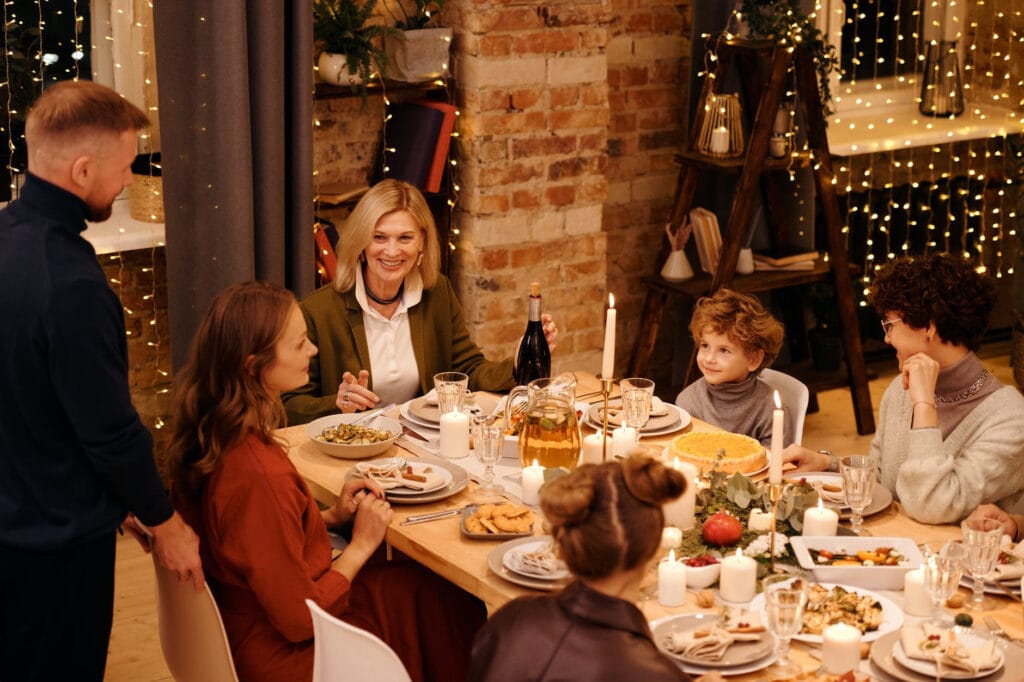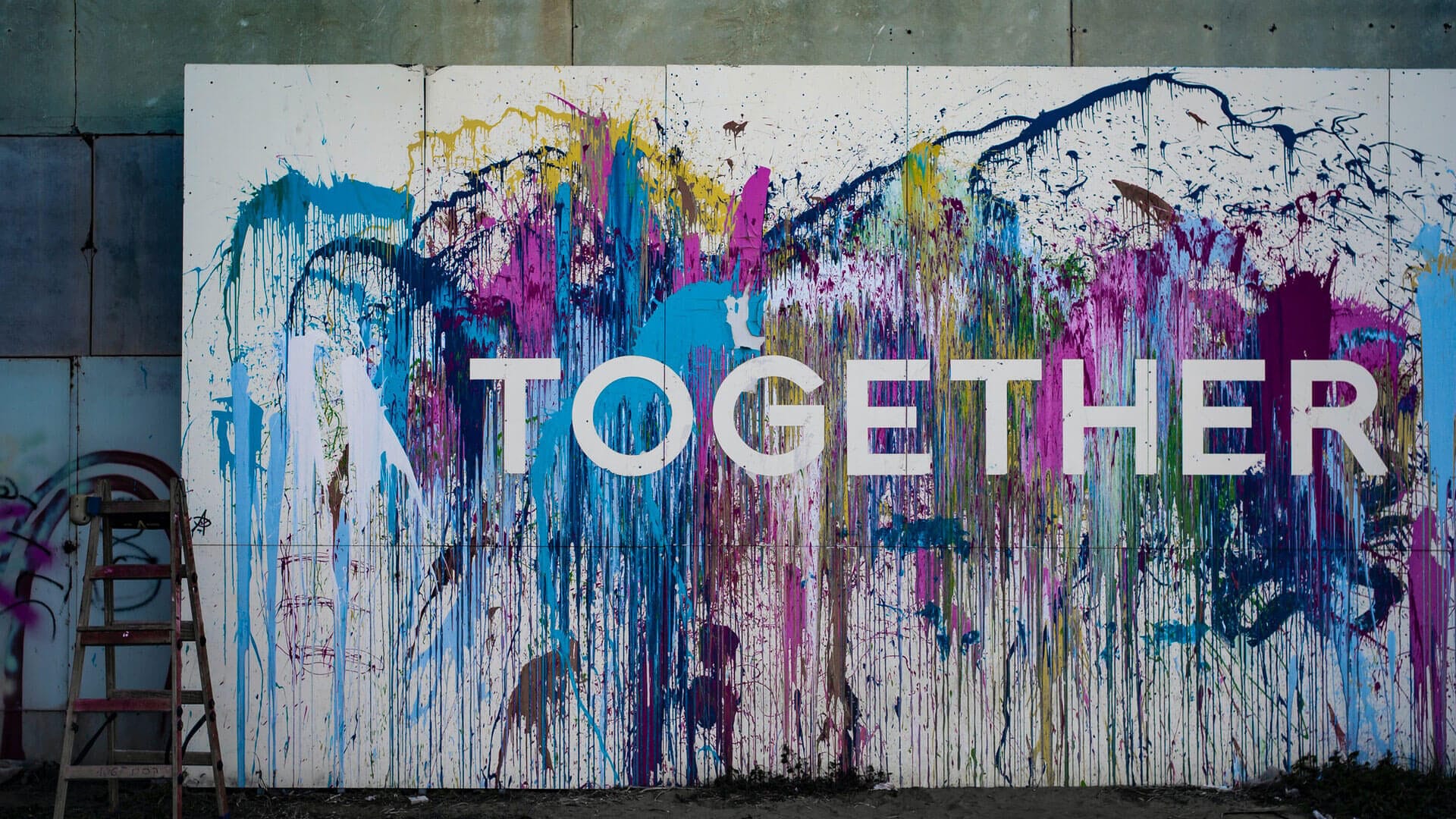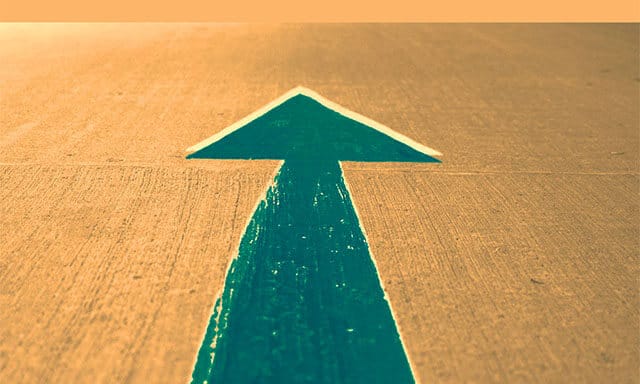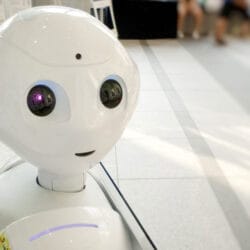The secrets to happiness aren't as complicated as we tend to make it, yet it…
2020-21 was a time to forget for most, but we can also see positive effects of the covid-19 pandemic too, giving us all hope for a (different) future.
We were not-so-long-ago plugged into our phones before the pandemic began, void at dinners or cafe tables sucked into games or apps (that would apparently ‘connect’ us), whilst ignoring the real interaction across the table.
We were arguably taking life for granted so wrapped up in new-world technology, rushed in often self-inflicted busy lives, and expecting all our answers to be found in the realms of comfort and ‘things’ that our busy lives could afford us.
Then the pandemic came, the lockdowns followed. The first port of call? Do what we know best – hideaway. Get lost in our phones even more so than before. After all, it had become the comfort zone for many before the pandemics started, so it was the quickest and easiest way to pass the time when on our own, locked down and bored.
How Our Mentality Changed As The Pandemic Went On
Slowly though the lockdowns became more the norm rather than the exception. As time went on the more people were subject to enforced pauses on their lives, and the more challenges they had to face along the way, the more lessons of deeper ingrained human needs and desires were learned.
Here’s what happened, with 7 positive, and possibly surprising, silver-lining benefits along the course of this pandemic.
1) We Started To Care Less About Our Virtual Online Selves


There’s no denying social media and online interactions actually went up during the pandemic, but the connections within the apps changed somewhat over time.
Playing with social media apps also slowly became less about connecting with people through a virtual online avatar attempting to showcase our ‘perfect or ideal lives’, but more a connection of our real lives.
Zoom helped. We could now see and connect visually much easier and felt less disconnected. Of course, tools like these existed before with Skype and the like, but Zoom came at the perfect time for when people really needed to develop a thicker skin in times of loneliness and to be more resilient.
It provided a way of connecting and feeling real, letting life continue somewhat, as opposed to what social media videos were before – a way of showcasing an extension of your real life, or a completely fake life you’d prefer to hide behind like some catfish.
The longer lockdowns went on the more this technology became our go-to to feel a sense of normality and connection to the outside world. We would become used to having Zoom calls and in a sense invite people into our homes as we did.
What was previously a strictly work relationship brought down barriers and felt more relaxed and inviting to treat people as people and not merely as colleagues. The need to put on a front or masquerade as ‘something you are not’ went down.
Technology exists through the pandemic, more than ever in some ways, but it allowed us to bring our real self into it which is refreshing.
Sign up to Zoom today.
2) Households Started To Speak Again (Actual Face-To-Face Conversations)


At a time where the world was becoming more divided and distant than ever with people working and living in faraway places from their homes, and where home dinners can become a separate occasion of the individual in front of their own respective TV or phones in their own rooms rather than a shared dining room, families and households found more strength in each other as more meals were around the dinner table again.
And while the talk was often of Covid related themes at least people felt an urge to connect personally again on shared matters rather than disconnect and simply want to get food over with as soon as possible so they could go and run back to their multi-level video game, their social media virtual selves, or their pressing work matters.
Suddenly, people were waking up to what was more important, real connection. People weren’t able to have it so much outside of their homes so it became of upmost importance inside the home.
Quality time helping each other out became more important that our own individual needs, even if it did bring up work/life balance challenges (this had positives too though as we see next).
3) Enforced Remote Work Changed The Work/Life Balance For The Better


Local communities were long the source of human longevity, but technology had seen globalization leap into new realms so fast, and local communities had (to some) become a footnote of history.
Technology advancements and monopolization had seen so many young people leave their homes to go work in the cities to climb the ladder of specialism, but the pandemic has (possibly) changed that.
While some people are unable to commute to the jobs they once could, some now simply don’t want to and would prefer to work remotely and even live in different places away from the city centers.
A recent survey suggested that 1 in 7 people now would prefer to leave a big city like London post coronavirus if they had the opportunity to do so.
While some of this is arguably knee jerk reactions when the chips are down, there’s certainly been evidence of more people moving away from expensive city centers to find more balance to their life by working remotely where possible.
It seems entirely possible that the days of vast city urbanisation could be shifting, and re-suburbanisation could be the direction we head next, but could also lead to a ghost town effect within cities.
People don’t see the need to be so distant from a base they want to call home anymore, as often people are in cities solely for the work prospects but not the life ones.
They may also still want to travel and venture to other places in the future when possible, but they are seeing less point in being fixed in one place where they are only situated because their job required it.


Now if their job doesn’t require a set location then they can have more flexibility and freedom in setting up their base in a more desirable location.
It would be no surprise to see the migration of larger city-living to more township and smaller localized cities advance in the years to come, with the suburbs and accessible fringe cities of these areas being the most desired. The trends already started.
4) We Have Started To Engage More In Different Skills & Experiences


It’s funny what happens once people aren’t so knuckle-fisted and tense. Before the pandemic people were so rushed in life chasing the ladder to nowhere (other than burnout). Then the pandemic hit and stresses mounted about job security, life changes enforced upon them, not being able to have freedom and see friends, and so on.
There were very valid reasons to feel concerned (and there still are to some degree). Covid-related insombia and side complications in life occured. Worries were very large indeed.
Yet, something else slowly started to happen.
This thing called ‘time’ was more available to many (although since some have argued that they are now working more than ever with added Zoom meetings whilst trying to managed other tasks like home-schooling). More meetings! Will we ever learn?!! (insert favourite head slap emoticon here).
For many, ‘time’ wasn’t something to attach schedules to everyday, it became something to utilize and enjoy more. Those long commutes weren’t in the way all of a sudden.
I mean why on earth were people spending 3 hours or their day commuting back and forth for a meeting that can easily be done online anyway?
The pandemic was a shake up and wake up for our wasted time.
With more time slowly came more energy (once it wasn’t used up worrying about things out of people’s immediate control). People started to learn more things, and reap the benefits of getting more sleep and the benefits of being LESS of an early bird (yes you heard it right).
Some became indulged in meaningful (and meaningless) Youtube binges, and found the time to learn from many more online courses that were increasingly becoming available.
Find online courses yourself too with Udemy, or even create your own with the skills you already have.
It’s really amazing what you can learn when you put your energy and time into it. People open up their potential to be so much more creative and adaptable than they might realize possible when stuck in the same routines each day.


Whilst learning skills online or at home isn’t quite the same as tangible real-world skills built with others, skills are skills none-the-less, and what is happening is people are realizing just how valuable it is to have a broader range of skills and knowledge again.
It’s a big wake-up call when your job or specialist subject might very quickly become obsolete (and before you are ready to adjust to something new), as the era of the specialist might well be shifting towards the era of the smart generalist.
Therefore, it comes as no surprise that many people have started to seek how to live more adaptable and flexible lives (and this website has itself seen a rise in the number of people interested in learning how to do so, as Richly helps through adaptability coaching).
[hfe_template id=’7432′]
5) We Are Becoming Much More Resourceful


When you spend multiple hours stuck at home restricted from being able to get out and life normally, two things can happen.
You go crazy and give up on being productive in life (which we all most likely had moments doing during the pandemic), or you use it as an opportunity to clear your mind and your immediate surroundings.
Many of us have taken on home redesigns and finally gone through those cupboards filled with stuff we can’t remember.
Try Planner5D to plan and redesign your home today.
While the pandemic has also led towards the temptation of online shopping therapy through delivering everything to our door, many have also used it as an opportunity (or through reduced income have been forced) to buy less and reuse what they already have.
Through doing so they are finding that they are far less automated in daily routines (likely because they don’t have to wake up to the same commutes), and are finding more time to be more resourceful and get creative.
6) The Desire To ‘Make Life Count’ Has Increased


While the world clearly isn’t out of the woods yet ( at the time of writing) and there’s still enough mounted tension within people to build all sorts of conspiracy theories (and look for someone to blame), we have certainly all grown in one aspect – our desire to live life to the fullest when we have the opportunity to do so.
The ability to freely go around and travel and work remotely from anywhere might still be a little way off due to post-pandemic restrictions and uncertainties (and we should really think about each other’s health rather than just our own ego).
However, another aspect of Covid that might be considered a silver-lining would be the increased appetite and desire for people to travel more frequently and to get more from life knowing how precious it is, either locally or further afield, especially if they can still earn as they do so with a more flexible life than seemed possible to most before Covid.
It’s almost inevitable that post-Covid the world will be in an element of party mode. People will be wanting to travel more often, try different experiences rather than be in the same place all the time, and spend quality time with each other’s company.
The pandemic has be horrible for everyone but it will likely lead to a major upswing in people ‘making life count’ in the years after (hopefully offsetting any post-traumatic stress that long exposures to isolation have created).
There’s also a very real possibility of people falling back into old habits, but if post-Spanish flu and first world war is anything to learn from we saw many people seek to live life to the fullest after that.


Yet, we should also heed a word of warning from post-Spanish flu and WW1, as this also coincided with the notion that nothing ever goes down when in party mode, and years later capitulated as the ‘excess over the reality’ hit home and led towards the Great Depression (should Bitcoin enthusiasts be aware in the coming years?).
7) People Have Come Together More In Movements Of Positive Change


Speaking of Bitcoin (as an example), it comes as no surprise that such a people-powered idea had flourished in the last few years and more recently meme stocks have seen short-squeezes unparalleled in their all-for-one execution due to online communities banding together on sites like Reddit.
With Bitcoin, the more people have been confined to their homes, and the more money printed to alleviate the pandemic stresses on the economy, the more likely people are to search for safer havens, especially to offset inflation.
Yet a big reason Bitcoin has profited is that it provided a way for everyday people to come together in times of turmoil elsewhere.
Covid has banded people together in more ways than we may have thought.
It’s also seen a rise in the number of civil rights movements and protests (and unfortunately riots as tempers and frustrations have over-boiled within the rise of identity groups).
While we need to be mindful and aware of the dangers of being potentially led by identity group collectives, there’s a positive element in people’s desires to try and come together as one.
Why are people becoming so passionate about driving change today?
Well other that a societally conditioned response to join ‘modern green-thinking bandwagons’ (which is a factor), the simple answer is that we can see what matters in life when we are all tested together.
The Pandemic Has Brought People Together, But Will We Forget The Silver-Lining Lessons Or Grow Beyond Them?
Whether this will all last remains to be seen, but there’s one very powerful and emotional reason behind why we should be optimistic that our togetherness and connection will only grow post-pandemic.
Just ask any war veteran and they will vividly remember times of war. While they may remember some horribly vivid images that may have scarred them for life, they also remember the times of unity and the collective spirit that helped people come through it together.
We should not forget that most, if not (nearly) all people involved in the war didn’t actually want to kill anyone. They were put in a position of ‘us or them’ and they would fight for their fellow soldier as much as they would for their own life.
RECOMMENDED: The book on Humankind by Rutger Bregman. You’ll feel better about the human race and not just our hopeful history but our hopeful future too.


For Covid, more and more of us will have had more vivid experiences and memories too as time went on.
When people start dying around you then things change. It’s no longer a virus that seems overexaggerated, it’s something very real that can claim anyone. When more people became part of the growing numbers we found we had more of a shared connection with complete strangers.
In the worst-hit places, it seems like everyone knew someone who was either affected personally or who had died because of Covid.
These times show true character and resilience in people. Lest not forget it.
RECOMMENDED: If you are struggling because of Covid and need some resilience coaching then try The Secret Inspirer, she’s a wonderful motivator in times of need.
During this time people have banded together in local communities more so than before technology arrived to change the way we live today, and even technology itself has helped connect people (as it should be doing) for the first time since its inception.
The original ideals of the internet and technology weren’t about dividing people or turning them into ‘drones behind phones‘, they were about connecting people (and hopefully tech companies see the value in truly connecting people rather than sucking them into maximized screentime and dopamine rushes that are simply unhealthy, pure capitalist minded and human-data driven).
It’s clear the pandemic has taken its toll on our world in both physical and psychological ways. Covid has brought about a lot of local struggles that don’t always make the news headlines.
Whilst it’s turned billionaires into even richer billionaires, others have lost their local businesses or livelihoods. It’s seen the emergence of conspiracy theories and large-scale protests and riots, and it’s taken away loved ones.
It’s had an impact. That’s safe to say.
Covid’s Positive Lessons To Take Into The Future


It’s been a difficult past year or so for almost everyone around the world, but we should try to remember the unity, awareness and advantages it has brought too:
- Some now know we can live our lives more flexibly than they thought possible before.
- Some have now realized how important finding a less-rushed, less-tech-fueled balance in life is, to appreciate our world and to slow down to be one with it.
- Some have realized what matters most in life after waking from autopilot. It’s been an eye-opening reminder to cherish the time we do have on this planet and to cherish the time we have with others we care about!
So while it might not always seem so, the devastating Covid-19 pandemic has some positive silver-lining benefits that can help us move forward.









